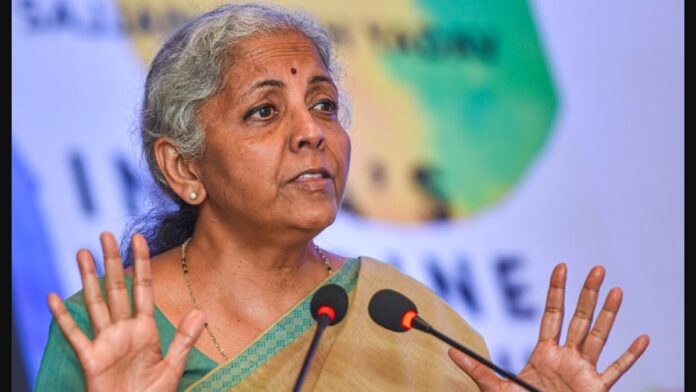In a recent development, Union Finance Minister Nirmala Sitharaman has sharply criticized the Tamil Nadu government for its reported decision to ban live streaming of worship at the new Ram temple. This move has sparked a heated exchange between the central government and the state administration, leading to a series of allegations and counter-allegations.
Sitharaman, in a post on social media (referred to as X), expressed her strong condemnation of what she deemed as “anti-Hindu, hateful action” by the Tamil Nadu government. She highlighted the alleged interference by the police in the affairs of privately held temples, claiming that they are being threatened to the extent of having pandals ripped off.
The state government, led by the DMK, swiftly denied the newspaper report that suggested oral instructions were given to prohibit special pujas and the distribution of free food in the name of Ram in temples. Labeling the report as “motivated” and an attempt to tarnish the government’s image, they announced their intention to take legal action against the newspaper.
In a press release, the Tamil Nadu government, under the leadership of MK Stalin, emphasized its commitment to the preservation and promotion of Hindu traditions. The release stated that during Stalin’s rule, the Hindu Religious & Charitable Endowments (HR & CE) department had overseen the consecration of 1,270 temples, daily provision of free food in 764 temples, and the restoration of 197 ancient temples, some dating back a thousand years, at a cost of nearly 300 crore.
“The Hindu believers in Tamil Nadu are well aware of these initiatives, and even the opposition cannot deny their impact,” the press release asserted.
Furthermore, PK Sekar Babu, the state’s Minister of Hindu Religious & Charitable Endowments, took to social media to address the situation. He refuted claims of limitations imposed on devotees’ freedom to offer food, conduct poojas in the name of Shri Ram, or provide prasad in Tamil Nadu temples.
The escalating tensions between the Union Finance Minister and the Tamil Nadu government reflect a broader debate over the perceived encroachment on religious practices and traditions. As both sides stand firm on their positions, the controversy raises questions about the intersection of politics and religion and the implications for the freedom of worship in the state. The legal action threatened by the state government against the newspaper adds another layer to the ongoing dispute, promising continued scrutiny and debate in the coming days.


